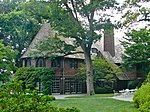Centreville Layton School is a private Delaware school for children with diverse learning styles. Centreville Layton School offers a robust educational and cultural experience for students who learn differently. The program identifies academic and social needs of the individual and provides a curriculum that focuses on problem solving and critical thinking. Through intervention and strengthening learning strategies, the school empowers each student to reach his or her potential.
The faculty rooster includes highly qualified teachers as well as a full-time Occupational Therapist, Language and Speech Pathologist, and a Clinical Psychologist. Centreville Layton School is small by design with low teacher to student ratios and intimate class sizes. Students are placed in their academic courses by ability while maintaining age appropriate social groups. CLS follows a traditional school year calendar with an optional Summer Program that includes an academic focused morning program and recreational optional afternoon program.
In addition to the traditional PreK-12th Grade programs, Centreville Layton School is the first of its kind in the Tri-State area to offer a Post High School Graduate program focusing on personal development while taking college courses at a local university. Centreville Layton School's Post Graduate & Personal Growth Program (PG2) is designed to instill high school graduates with the direction, confidence, and independence needed to navigate their next steps in life. College courses, vocational experiences, instruction in interpersonal skills, and cooperative cultural and social activities will provide PG2 students with opportunities to explore interests, discern personal value systems, and deepen professional, personal, and practical awareness. This experience will encourage students to develop real-world preparedness, so they can claim their place in an ever-changing world.
Centreville Layton School is the result of the merger between Centreville School (est. 1974) and Layton Preparatory School.
Centreville Layton School students may face challenges in one or more of the following areas:
Language processing difficulties
Dyslexia
Difficulties with spelling, reading, writing, and math
Fine and gross motor skill delays
Executive functioning disorder
Social skills
Anxiety
Receptive and expressive language disorders
Peer relationships
School-related apprehension
Attention issues such as ADHD










